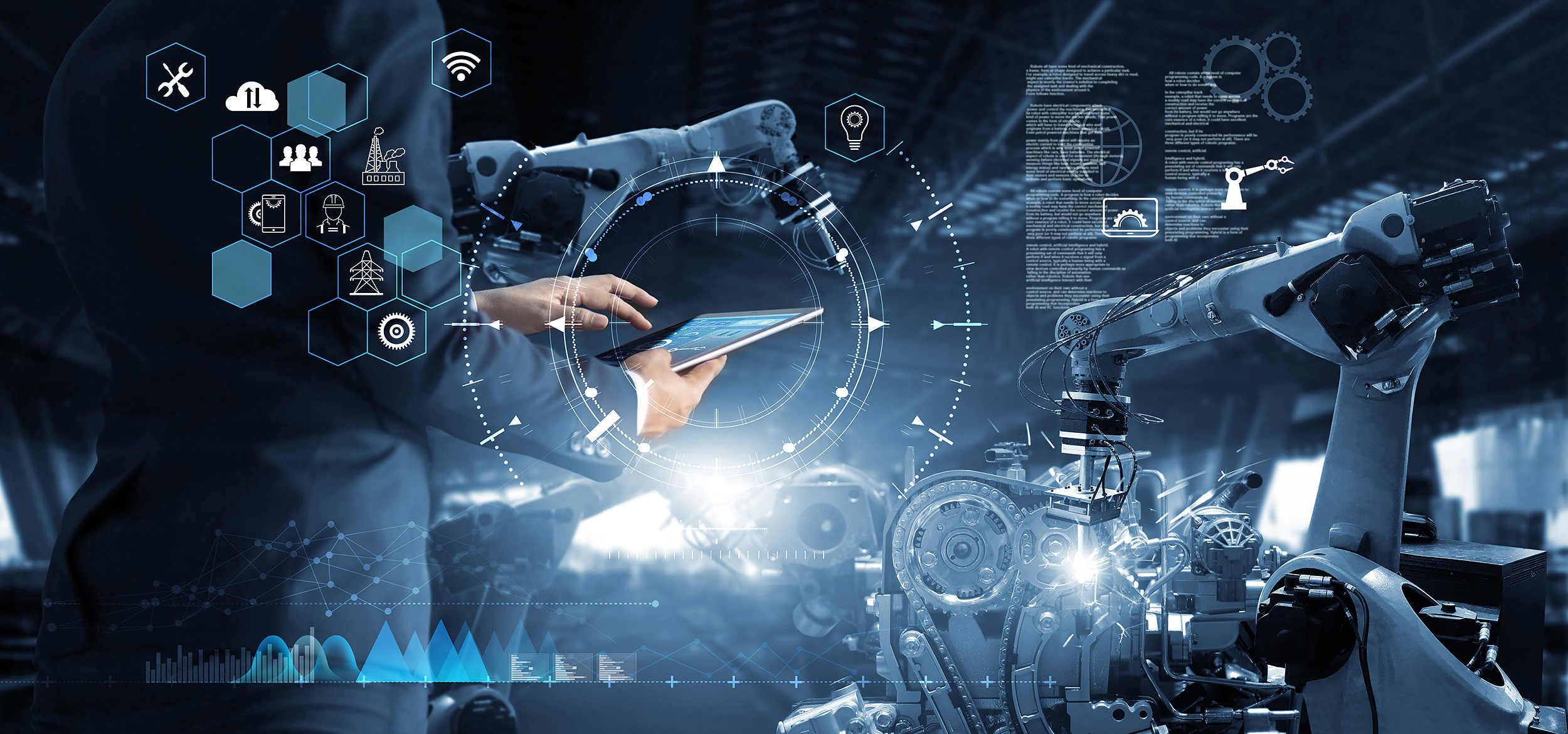The last decade has seen an exponential expansion in both Industry 4.0 technologies and the circular economy. A study conducted at the UPV/EHU shows that the integration of Industry 4.0 technologies contributes in a positive way towards the circular economy, although not all technologies exert the same influence. Additive Manufacturing is one of the technologies that is displaying the greatest impact.
Industry 4.0 technologies improve the circular economy
A study by the UPV/EHU-University of the Basque Country explores how Industry 4.0 technologies impact on the circular economy
- Research
First publication date: 29/11/2021

Industry 4.0 basically involves the digitisation of production processes to make them more efficient. So when these technologies are incorporated into industry, the main idea is to improve productivity, reduce costs, increase sales, etc. The impact of Industry 4.0 technologies on sustainability and the circular economy is significant, yet these aspects have not been studied in depth.
Digitisation offers Industry 4.0 many technological opportunities: Additive Manufacturing, Artificial Intelligence, Artificial Vision, Big Data and Advanced Analytics, Cybersecurity, Internet of Things, Robotics and Virtual Reality and Augmented Reality. However, "what is lacking are studies on the influence that each of these technologies exerts on the main policy areas covered by the circular economy. That is why this UPV/EHU study aims to bridge this gap," said Iker Laskurain, lecturer and researcher in the UPV/EHU's Department of Business Organisation.
"In one and the same study we collected eight Industry 4.0 technologies with the same research protocol, i.e. following the same parameters and, in turn, focusing on five types of reductions (Rs) in the circular economy: Reduction of materials and energy, Reuse, Recovery, Recycling and Reduction of waste and emissions," added Naiara Uriarte, a UPV/EHU lecturer and researcher.
Overall, "the results confirm the existence of a wide range of influences that Industry 4.0 technologies offer companies so that the circular economy can be improved. These improvements are mainly related to reducing the consumption of materials and energy, and the generation of waste and emissions", said Beñat Landeta, lecturer and researcher in the UPV/EHU's Department of Business Organisation. However, "there are considerable differences between the potential impacts of each technology. What has been demonstrated in particular is the positive impact of Additive Manufacturing and Robotics. One of the major contributions of both technologies is the enhanced use of material. Moreover, another important aspect of Additive Manufacturing is that it generates much less noise and allows parts to be produced close to the point of use, so it can be installed in whatever plant or sector you want, which could reduce transport costs and facilitate management. In addition, automation can improve waste treatment and management through robotic sorting systems, etc.", added Germán Arana, lecturer and researcher in the Department of Business Organisation, which collaborates with the circular economy classroom at the Faculty of Engineering –Gipuzkoa–.
In addition, "the internet of things (IoT) makes it possible to see the entire production process in real time and in situ and even monitor how the machines are functioning. With the help of a sensor that issues a warning if the machine is running out of oil, for example, the life cycle of such machines can be increased", the researchers explained. In addition, "Artificial Intelligence is capable of detecting, much earlier, those products that fail to meet quality specifications; by detecting any damage in advance, savings can be made on material and the costs of subsequent operations can be cut," added Iker Laskurain.
So, it is possible to align Industry 4.0 with the need to extend the lifetime of products and to generate new opportunities, thus making a circular economy possible. According to the researchers, "the results obtained point to the need to further explore the new impacts generated by the ongoing development and integration of technologies given that Industry 4.0 is continuously evolving".
Bibliographic reference
- Exploring the influence of industry 4.0 technologies on the circular economy
- Journal of Cleaner Production
- DOI: 10.1016/j.jclepro.2021.128944



